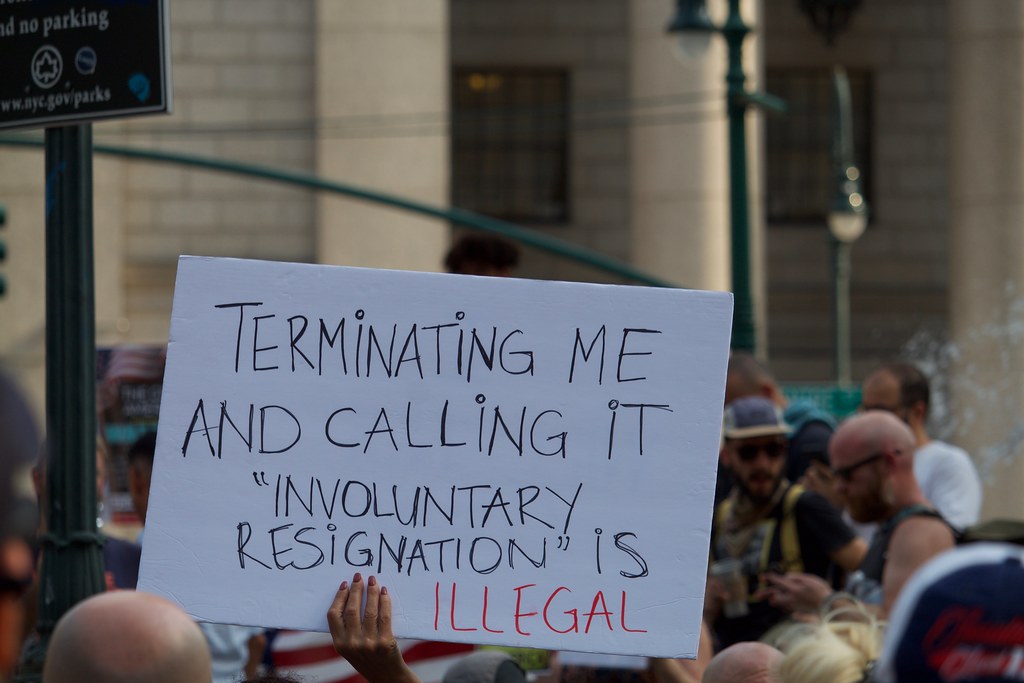WASHINGTON — U.S. Senator Tim Sheehy introduced the COVID-19 Military Backpay Act of 2025 on Tuesday, legislation designed to restore compensation for thousands of servicemembers who were discharged under the Biden administration’s COVID-19 vaccine mandate.
The bill addresses what Sheehy characterized as an injustice affecting nearly 100,000 servicemembers and their families who faced adverse consequences for refusing to comply with the mandate.
“Under the Biden administration, thousands of American warfighters were unceremoniously – and without due process – discharged from the military for refusing to comply with Joe Biden’s vaccine mandate,” Sheehy said in a statement. “This unacceptable action by the last administration robbed servicemembers of the pay and benefits they rightfully earned in service to our country.”
The senator emphasized that the legislation aims to fulfill “our government’s sacred obligations to the men and women who put their lives on the line in defense of our freedoms.”
Scope of Impact
According to the senator’s office, the vaccine mandate resulted in significant personnel losses across military branches:
- Nearly 8,500 active-duty service members were discharged for non-compliance
- 60,000 Army Reserve and National Guard members were barred from service and denied pay and benefits
- Approximately 100,000 servicemembers and their families were adversely impacted overall
These servicemembers lost pay, benefits, and retirement accrual during their separation from military service.
Legislative Details
The COVID-19 Military Backpay Act of 2025 would provide a comprehensive legal framework for affected servicemembers to seek compensation through the Court of Federal Claims. Key provisions include:
- Civil Action Process: Covered members can file civil actions in the Court of Federal Claims to determine if their discharge was involuntary or unlawful
- Broad Definition of “Covered Discharge”: Includes any discharge, separation, cancellation of active-duty orders, or transfer from active to inactive status resulting from non-compliance with the COVID-19 vaccination mandate
- Involuntary Discharge Standards: The bill establishes that discharges cannot be considered voluntary if they resulted solely from vaccination non-compliance
- Comprehensive Remedies: Beyond backpay, the legislation provides for deemed service credit, retirement benefits for those who would have reached 20 years of service, and separation pay calculated through the end of original service terms
- Reserve Component Compensation: Specific provisions for compensating Reserve and National Guard members for missed inactive-duty training
- Automatic Reenlistment: Members are deemed to have reenlisted for an additional two-year term, ensuring continuity of service credit
The legislation builds upon President Trump’s executive order that reinstated servicemembers discharged under the military’s COVID-19 vaccination mandate. While the executive order mandates reinstatement and back pay for affected servicemembers, Sheehy’s bill would establish the formal administrative framework needed to process these claims and ensure compensation is actually delivered to military families.
Background: From Healthcare to Military
The military vaccine mandate was part of broader federal vaccination requirements from the Biden administration that sparked significant opposition across Montana and the United States. In November 2021, over a thousand Montanans participated in statewide rallies protesting vaccine mandates imposed on healthcare workers, with demonstrations in 10 cities including Missoula, Bozeman, and Billings.
Healthcare workers at the time faced similar ultimatums to those later imposed on military personnel—comply with federal vaccine mandates or lose their jobs. Missoula healthcare workers joined the protests, with Community Medical Center telling employees they would have to comply by January 4th, 2021 or be terminated.
The military mandate followed similar patterns, ultimately affecting the livelihoods of servicemembers across the country.
Legal Context
The vaccine mandate faced legal challenges, with courts ultimately determining it was illegal. Congress officially repealed the mandate in the FY 2023 National Defense Authorization Act. However, many affected servicemembers have continued to face difficulties in receiving compensation for their losses during the separation period.
The legislation’s routing of claims through the Court of Federal Claims represents a significant departure from typical military administrative processes. By establishing federal court jurisdiction, the bill provides servicemembers with stronger legal standing and more comprehensive remedies than would be available through standard military channels.
This approach ensures that affected servicemembers have access to full judicial review of their cases, with the court having broad authority to award “such other remedies as may be available at law or in equity.” The federal court setting also provides greater independence from military command structure in evaluating these cases.
The new legislation represents a comprehensive approach to addressing the financial impact on military families who were separated from service during the mandate period.
